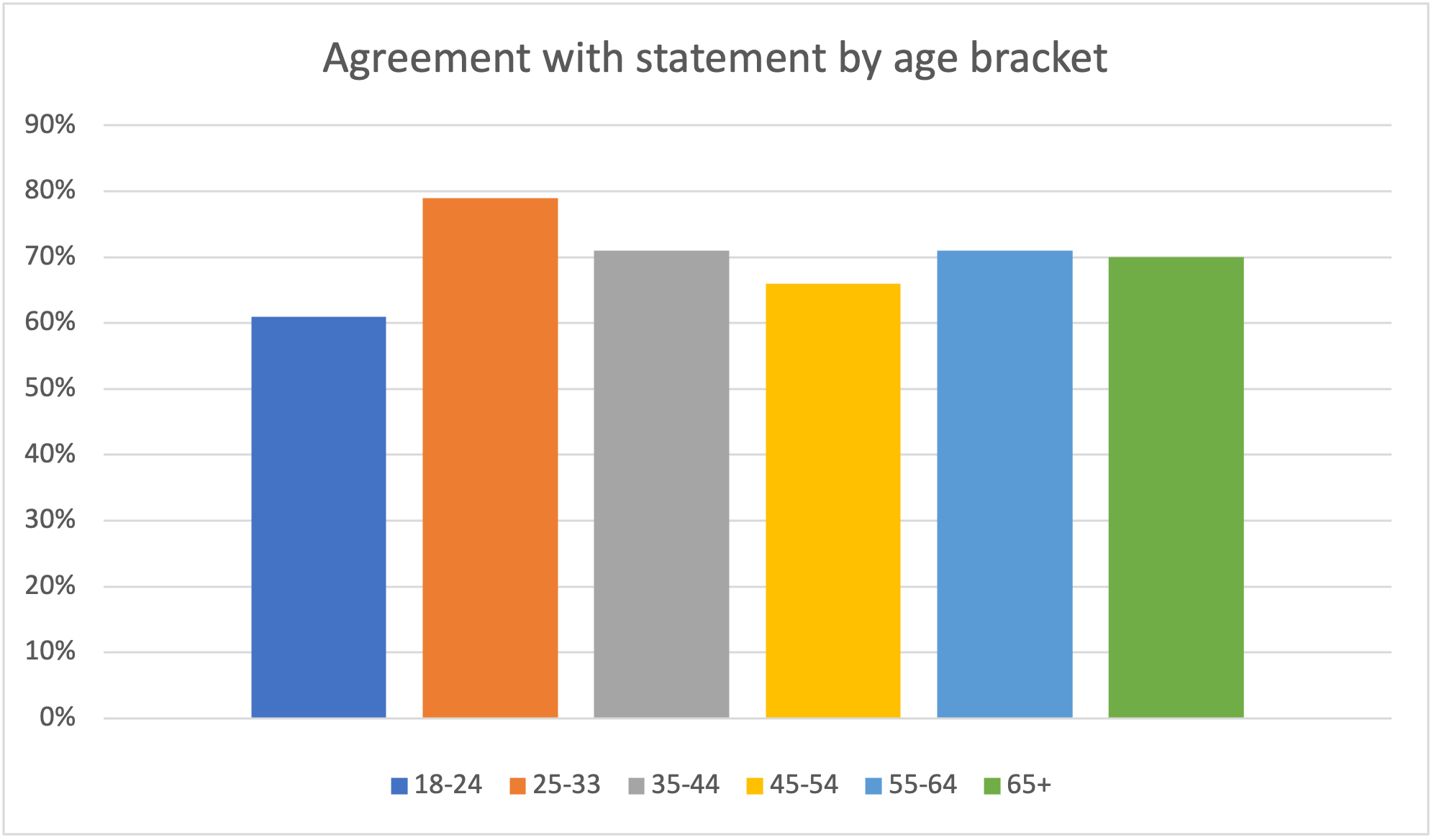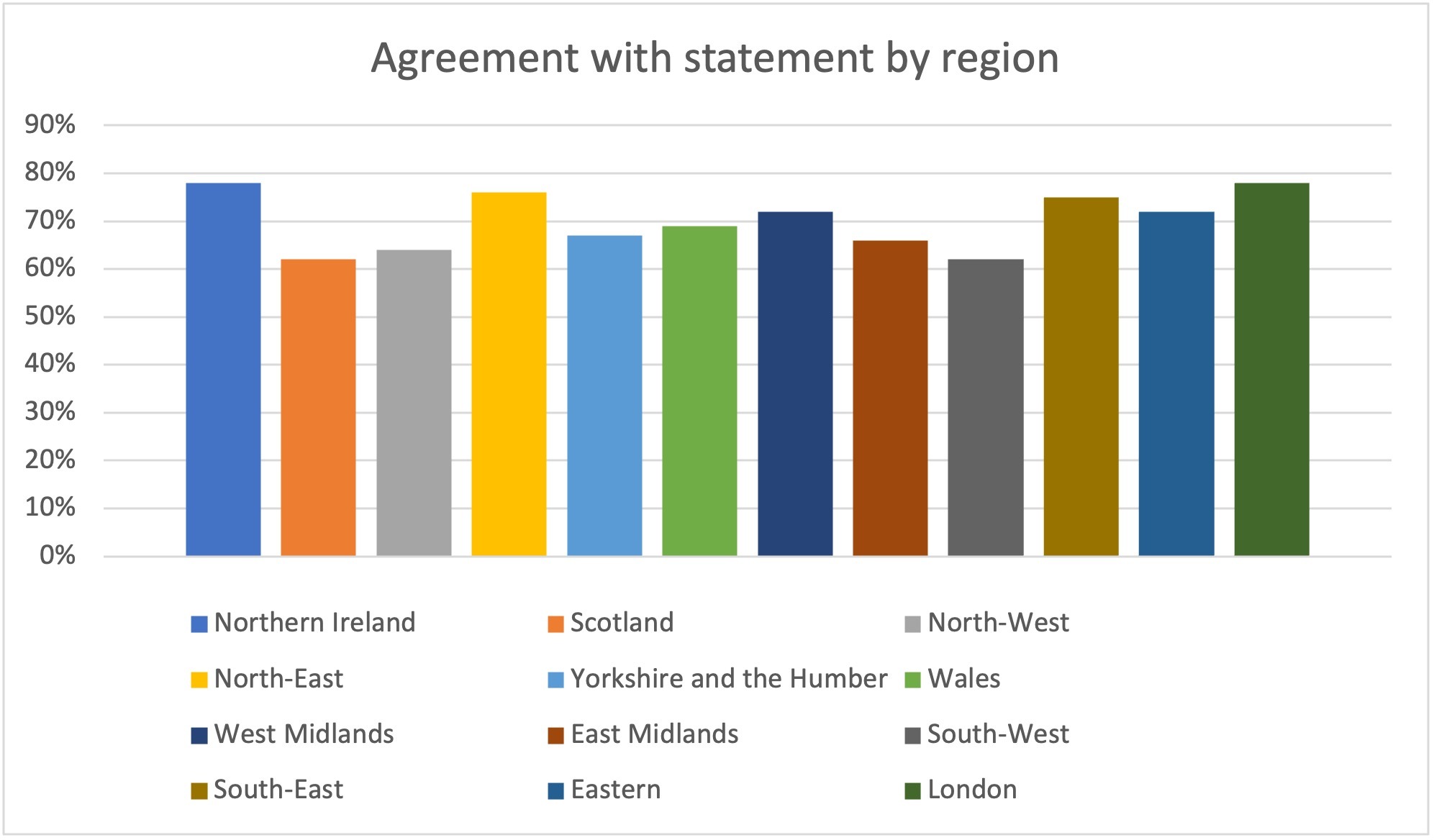
- Seven in ten believe: Private tutoring significantly boosts a child’s determination to succeed.
- Young adults remain sceptical: Only 61% of 18-24-year-olds think tutoring strengthens a child’s drive.
- London and Northern Ireland lead the way: 78% in both regions say tutoring enhances determination.
- Regional disparities emerge: Agreement falls to just 62% in Scotland and the South-West.
No Nonsense National Survey Programme 2024-25 assessed levels of agreement to the following statement:
‘In most cases, a private tutor can substantially improve a child’s determination to succeed.’
NATIONAL FINDINGS
70% of respondents agreed that in most cases, a private tutor can substantially improve a child’s determination to succeed.
With a one-to-one tutor, students often develop greater resilience, as tutors help students to better handle setbacks and challenges more effectively.[1]
This builds resilience, enabling students to become more determined to achieve their goals by overcoming obstacles.[2]
Additionally, tutors can help students set achievable, realistic goals.
Working towards these goals together with a tutor in their corner can give students a clearer sense of direction and purpose, increasing their determination to succeed.
Finally, tutors can introduce students to more advanced or interesting materials not covered in their school’s curriculum.
This can help spark a student’s interest and passion for a subject, thereby increasing their determination to succeed.
These points help to shed some light on why 70% of respondents agreed that in most cases, a private tutor can substantially improve a child’s determination to succeed.
AGE VARIATIONS
The highest level of agreement was in the 25-34-year old age bracket at 79%.
Respondents in this age group are at an age where they are starting their own families, might have young children of their own or are planning to start a family soon.
Naturally, this might influence how they perceive the educational benefits of private tutoring, as they themselves will be looking to provide the best opportunities for their own children.
Additionally, respondents aged 25-34 are more likely to be acutely aware of the increasingly competitive nature of the UK education system and job market.
It would be a natural response to view private tutoring as a necessary tool to give their children an edge in achieving success, thereby increasing their determination.[3]

By contrast, the lowest level of agreement was in the 18-24-year old bracket at 61%.
It can be assumed that a significant proportion of respondents in this category will still be in formal education or have only recently completed it.
They will likely have had more direct experience with the pressures of secondary and tertiary education compared to older respondents, and might be more likely to view determination as something that has to come from within and cannot necessarily be instilled by an external tutor.
REGIONAL VARIATIONS
The highest level of agreement was from respondents in Northern Ireland and in London, both at 78%.
Whereas in London this could be put down to a strong culture of parental investment in education, both financially and emotionally.[4]
In Northern Ireland, a reason behind this high level of agreement might be that many areas in the country use academic selection age 11 (such as AQE and GL tests) to determine secondary school placement.[5]

In contrast, the lowest level of agreement from respondents dropped to as low as 62% in Scotland and the South-West of England.
The figure in Scotland might be related to how Scottish education policy emphasizes comprehensive education and equity for all.[6]
This might breed scepticism towards external support such as private tutoring, as the focus here is on holistic development.[7]
References:
[2] Ibid.
[7] Ibid.
